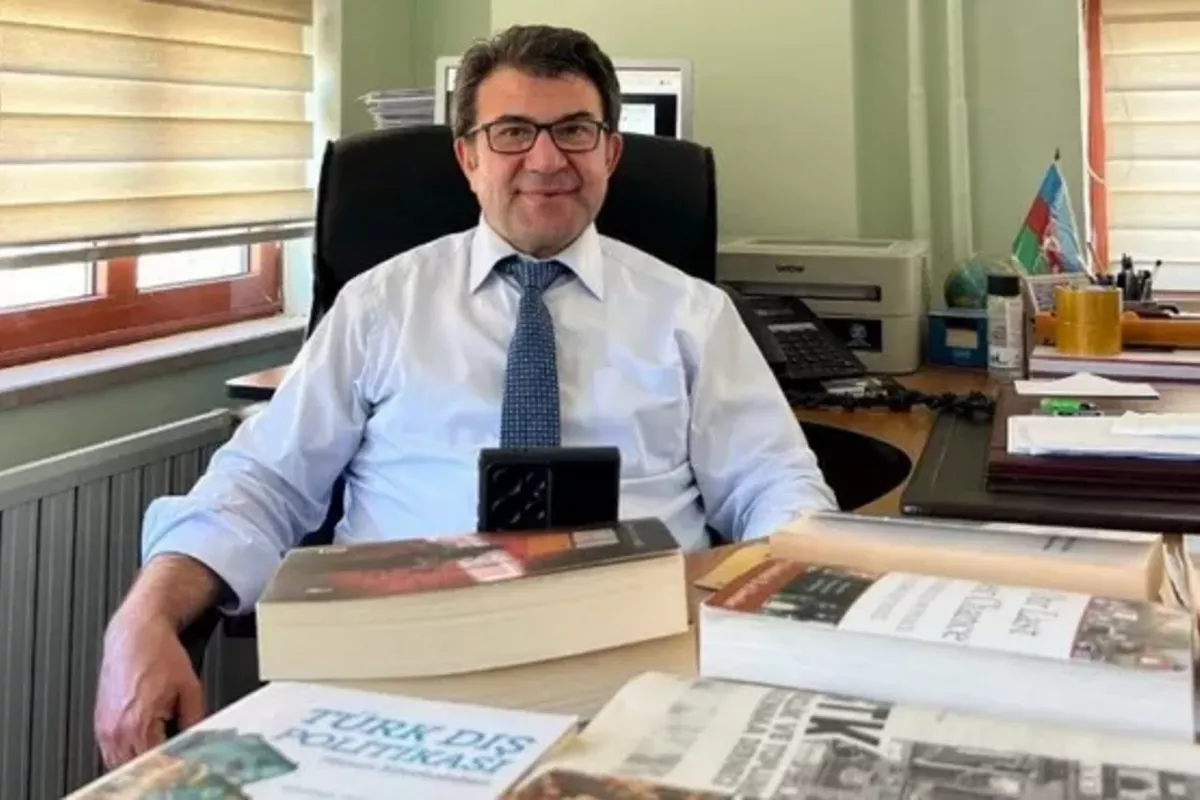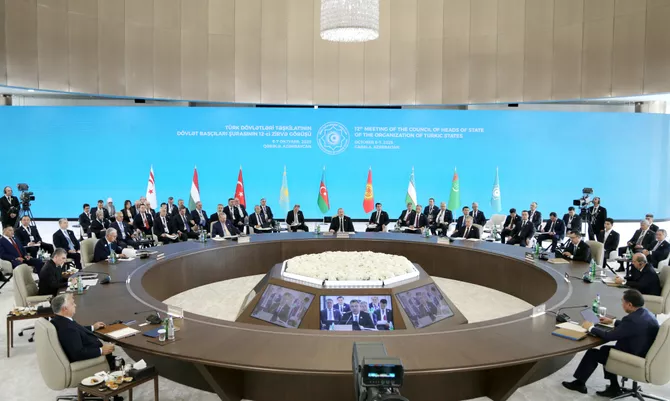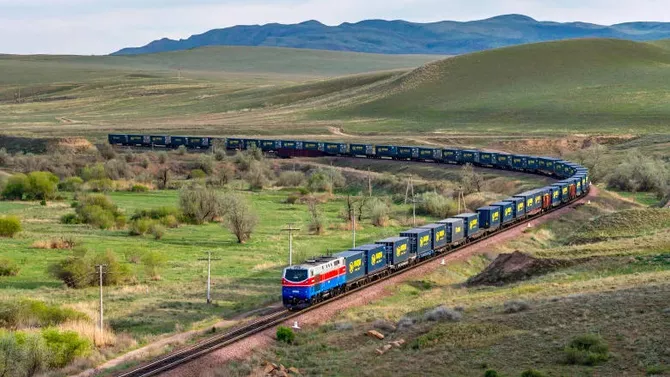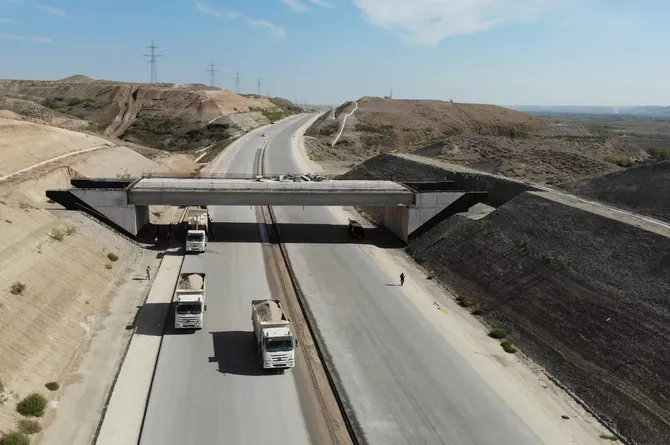
Turkish political scientist and professor Hüsamettin İnaç
Amid rapid geopolitical changes and the rising importance of regional alliances, the Turkic world is entering a new phase of institutional development. Türkiye and Azerbaijan - historically united by the principle of “one nation, two states” - are now shaping not only a strategic partnership but also a new security architecture that influences the political balance from the Middle East to Central Asia.
At the 12th Summit of the Organization of Turkic States (OTS) in Gabala, discussions centred on the idea of transforming the organization into a genuine centre of power, with the Ankara-Baku alliance serving as its driving force.
In an exclusive interview with The Caspian Post, Turkish political scientist and professor Hüsamettin İnaç discusses Türkiye’s vision for modern Azerbaijani-Turkish relations, the strategic objectives of the OTS, and the emergence of a new Eurasian security system.
- Relations between Türkiye and Azerbaijan have long been based on the principle of “one nation, two states.” How does this fraternal alliance between Ankara and Baku today influence the regional security architecture and the political balance extending from the Middle East to the South Caucasus?
- Both countries, having achieved remarkable success during the Second Karabakh War in 2020, have created a powerful geopolitical synergy. The Shusha Declaration became a symbol of the deepest level of alliance - one that only a few states have ever achieved. This cooperation produced a geopolitical “multiplier effect”: the Ankara-Baku partnership has had a significant impact on the entire region, stretching from the Middle East to the South Caucasus.
A vivid example is the joint engagement of Türkiye and Azerbaijan in the Syrian direction. Thanks to the agreements reached, Azerbaijani natural gas is now being supplied to Syria, which in itself illustrates the scope and influence of this synergy.
In the future, with the inclusion of Georgia and Armenia in this process under Türkiye’s active support, a powerful South Caucasus alliance may emerge - one capable of becoming a new centre of strength and stability in the region.

Photo: AZERTAC
- At the 12th OTS Summit, President Ilham Aliyev emphasised that security is the main condition for development. How closely does Azerbaijan’s approach to regional stability align with Türkiye’s strategic interests? And can we say that the idea of creating a common defence space within the Turkic world is already on the agenda?
- President Ilham Aliyev’s views and proposals are extremely precise. Today, especially within the framework of the Organization of Turkic States, it has become inevitable for the organization to evolve from an economic and cultural union into one that forms its own security and defence architecture.
In the modern world, every state faces a struggle for survival. The war between Russia and Ukraine and the tragedy in Gaza have, unfortunately, created a reality in which power determines who is right.
In such circumstances, the establishment of new regional alliances with defensive characteristics - even if not as large-scale as NATO - appears highly beneficial. This fully corresponds to Türkiye’s interests: with its army serving as a deterrent force and, thanks to the “geography of the heart,” as Ankara often describes it, Türkiye can develop political and economic cooperation across a vast area while maintaining a high degree of independence from external influence.
- Türkiye today plays an active role not only in the Middle East but also in Central Asia. How does Ankara view Azerbaijan’s mission as a “bridge” between Türkiye and the Turkic states of Central Asia, particularly in the context of the East-West and North-South transport corridors?
- In today’s world, energy holds exceptional importance, and logistics - the provision and delivery of goods - plays a decisive role in the functioning of supply chains. Therefore, transport corridors occupy a special place. From this perspective, Türkiye and Azerbaijan are indeed at the very centre of both the North-South and East-West routes.
Consequently, the issue of security becomes even more critical, as such transport corridors must ensure reliability and safety in trade and cargo transportation. The security architecture, therefore, assumes fundamental significance.
In recent years, within the framework of the joint corridor forming part of the Belt and Road Initiative, as well as along the North-South routes stretching from Russia to the south, Türkiye and Azerbaijan have taken on strategically irreplaceable roles, acting as a bridge between regions.

Photo: World Bank
- At the Gabala Summit, the idea of transforming the OTS into a full-fledged geopolitical centre of power was put forward. Do you think Ankara and Baku can serve as the “dual engine” of this process - in terms of the economy, security, and ideological solidarity?
- Indeed, at the Gabala Summit, the idea of transforming the Organization of Turkic States into a genuine geopolitical center of power came to the forefront. In this context, Ankara and Baku have become the two main pillars of the alliance, having demonstrated in practice an exemplary model of solidarity and synergy during the Second Karabakh War and later cementing it through the Shusha Declaration.
Other OTS members now regard this experience as a model, with the victory itself having become both sacred and symbolic.
Within the emerging security and defense framework, three countries currently hold the most favorable positions for deepening geopolitical cooperation - Türkiye, Azerbaijan, and Uzbekistan. Other states - Kazakhstan, Kyrgyzstan, and Turkmenistan - have their own specific circumstances and therefore require more time to prepare for closer participation in these integration processes.
Thus, Ankara, Baku, and Tashkent are likely to become not a dual but a triple engine of Turkic integration. Moreover, Azerbaijan recently signed a strategic cooperation agreement with Uzbekistan, similar to the one it had earlier concluded with Türkiye.
- In recent years, Azerbaijan has strengthened its influence not only in the South Caucasus but also toward the Middle East and Europe through its energy and transport initiatives. How do you assess Baku’s role in shaping the new Eurasian architecture stretching from China to Europe?
- At a time when the war between Russia and Ukraine continues in the north, and the tragedy in Gaza intensifies in the south, Azerbaijan’s significance in the regional context is rapidly growing. Especially against the backdrop of restrictions on Russian oil and gas supplies to Europe and the imposition of serious sanctions on Moscow, Azerbaijani gas has acquired particular importance.
Thus, Azerbaijan, situated at a key energy crossroads for Europe, is gradually transforming into a regional hub for the transportation of energy and natural gas. Moreover, the agreement signed with Turkmenistan marks an important milestone in enabling the delivery of Turkmen gas - together with Azerbaijani supplies - to Europe via Türkiye.
- What should be the main priorities of the OTS for Türkiye after the Gabala Summit? Can the organization evolve beyond cultural and economic cooperation to become a platform for decision-making in security and foreign policy?
- Cultural and political cooperation among OTS member states is undoubtedly important. However, the cultural dimension has already developed naturally, since we are united by language, heritage, and a shared history rich in remarkable events.
Yet, to preserve its place in the modern world and become a regional or even global power, the Turkic world must first achieve economic independence, followed by independence in security. The Organization of Turkic States cannot entrust its defense and security to others - these matters must be addressed within the union itself.
As we have seen since the beginning of the Russia-Ukraine war, NATO has entered a period of uncertainty. The Transatlantic Alliance is in crisis: the 85-year partnership between the U.S. and Europe has weakened due to America’s passivity, its attempts to establish closer ties with Russia, and its de facto withdrawal of support for Ukraine.
In this context, the creation of a unified “Turkic space” and the transformation of the OTS into an independent security and defense union could carry enormous geopolitical significance. The region often referred to as Turkestan today attracts the attention of Russia, China, and the United States alike. Therefore, if the Turkic states wish to act according to their own priorities and agendas, they must rapidly deepen cooperation in security and defense - it has become a geopolitical necessity.

Photo: TRT World
- Türkiye and Azerbaijan are the initiators of major transport projects such as the Zangezur Corridor and the Middle Corridor. Do you think transport integration is becoming a new dimension of the Turkic world’s strategic unity and the brotherly relations between Türkiye and Azerbaijan?
- One of the key factors strengthening and deepening cooperation between Türkiye and Azerbaijan is the opening and timely operation of the Zangezur Corridor. Economic cooperation is one of the most essential pillars of alliance relations, as it creates mutual dependence and shared benefits.
In this regard, the connection through the so-called “Eye Corridor” - the route through Zangezur - has made Azerbaijan and Türkiye indispensable partners along the trade path from China to Europe and London.
In integration theory, there is a concept known as the “spillover effect,” where economic ties promote cultural relations, cultural interaction enhances mutual influence, and, eventually, this leads to cooperation in defense and security.
From this perspective, both economic and personal security acquire special significance. By holding the summit in Gabala, the Organization of Turkic States effectively demonstrated the highest form of integration, transforming the synergy among Turkic nations into a geopolitical advantage at both regional and global levels.
Share on social media